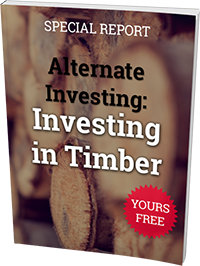Well, that was quick…
Financial markets tumbled in the two trading days following the Brexit vote to leave the European Union, losing $3 trillion dollars worth of market capitalization. That was the equivalent of over 100% of the United Kingdom’s gross domestic product (GDP) disappearing into the financial ether.
The day after, elite currency speculator George Soros solemnly pronounced that Brexit signaled the unleashing of a crisis on the financial markets, comparable only in severity to the financial crisis in 2007 and 2008. Fast-forward a week, major global financial markets have already recouped most of their losses.
Sure, British homebuilders and bank stocks continued to suffer, and the pound sterling is still trading near 30-year lows. But the rest of the world shook things off pretty quickly. The U.S. S&P 500 closed its strongest week of the year, jumping 3.22%. Emerging markets fared even better by rocketing 6.28%. Volatility in U.S. markets — as measured by the CBOE Volatility Index (VIX) — had never plummeted more quickly than it did last week, signaling a remarkably quick return to normalcy.
The Chain of Overreaction
The market rebound tells us as much about the nature of financial markets as it does about Brexit itself. And those lessons are universal, going far beyond the implications of the June 23 vote.
Here are three takeaways from the financial markets’ action over the past 10 days.
1) Financial Markets Overreact.
Warren Buffett has said that the single-most-important thing he has ever read was Benjamin Graham’s chapter on Mr. Market’s Mood swings in “The Intelligent Investor.”
And “Mr. Market” is just another metaphor for market sentiment.
In his book, Graham compares the market to a manic-depressive.
Some days, Mr. Market is euphoric. On other days, he’s very depressed. If you catch him on a euphoric day, he wants a very high price for his shares. If he’s in one of his down moods, he’s willing to sell you his shares for a pittance.
Mr. Market highlights the one thing you can predict with certainty about financial markets: investors will always overreact to events — whether positive or negative.
And it also highlights how savvy investors can profit from just such overreactions.
2) The Media Overreacts
In this world of lightspeed Internet connections, too much information leads to over communication, which only exacerbates the perceived uncertainty in global financial markets.
The average holding time of stocks has tumbled since you could buy and sell stocks at the click of a mouse, making it easy for investors to rush for the exits at once.
Contrast this with my experience of the stock market crash in October 1987. At that time, I was comfortably ensconced behind the Iron Curtain, and didn’t even hear about the biggest crash since 1929 until I read about it in a week-old International Herald Tribune that I had picked up at a hotel. Today, Russian and Eastern European stock markets sell off in sympathy with Wall Street and London in the blink of an eye.
3) ‘Being Right’ Doesn’t Necessarily Make You Money
Throwing together an army of financial analysts, pollsters and even betting houses that have real skin in the game does not make their intricate and impressive analyses right. The post-Brexit sell-off in the markets still caught the smartest money in the world off guard.
More perversely, even if analysts are right, it doesn’t mean they can make money off their insights.
Let’s go back to Soros.
On June 20, Soros declared in Britain’s Guardian newspaper:
“My 60 years of experience tells me that the pound will plummet, along with your living standards. The only winners will be speculators.”
Although the grandmaster himself predicted that the pound would fall 15% to 20% if the British voted for Brexit, Soros himself did not short the currency.
Thus, he failed to replicate the success of his most famous currency wager — shorting the British currency in September 1992, where he netted $1 billion in profits. That was back when $1 billion was still real money.
In fact, the world’s most famous currency speculator was long the pound, (on the wrong side of the bet). He expected, as almost everyone else did, that Brexit would fail.
One of the most profound, if counterintuitive, bits of trading wisdom I ever came across was trading coach Van Tharp’s observation that “analysis has nothing to do with your trading success.”
Instead, successful trading and investing is about managing your own psychology. And that’s a very different skill than penning an op-ed piece on whether or not the European Union (EU) is set to implode — or whatever the crisis du jour may be.
To quote Pogo, “We have met the enemy and he is us.”
How to Handle the Next Market Sell-Off
As a rule of thumb, I believe there are three ways to react to an unexpected market sell-off.
First, you can sit on your hands and wait for the dust to settle. In other words, resist the temptation to “do something.” In the words of Soros’ former partner Jim Rogers: “Don’t play. Just don’t play.”
Second, you can search for and invest in “safe haven” assets such as the CurrencyShares Japanese Yen ETF (FXY), Vanguard Total Bond Market ETF (BND) or the ultimate “the sky is falling” fund, SPDR Gold Shares (GLD). All three of these funds rose in the two days after the Brexit vote.
Third, you can embrace the crisis, and look for “once in a decade” trading opportunities.
An example of this strategy would be to make an aggressive bet on hard-hit European banks.
The Stoxx Europe 600 Banks index fell 14% on the day after the Brexit vote, compared with a decline of just 7% in the broader European index, as investors feared Brexit would harm both investment banks’ cross-border business and spur an economic slowdown.
U.K. bank Barclays PLC (BCS) was one of the stocks hardest hit, with its shares falling nearly 30% in early trading before clawing its way back to close down 20%. Other European banks also sold off sharply, with Switzerland’s Credit Suisse Group AG (CS) closing down 16% and Spain’s Banco Santander, S.A. (SAN) tumbling 20%.
If you believe that the negative impact of Brexit is overblown, then these banks each offered a terrific trading opportunity.
Sure enough, Barclays PLC (BCS), Credit Suisse Group AG (CS) and Banco Santander, S.A. (SAN) are 12.28%, 4.62% and 8.61% up off of their post-Brexit vote lows.
At the same time, placing these kinds of bets is only for the most aggressive of investors.
I personally tend to follow Rule number 1, as my exits are already in place, and I have already accepted the worst-case scenario.
But the most important thing is to have a plan and to have the discipline to act on it.
Once you do, it is always easier to “Keep calm and carry on.”
And in a year’s time, the very crisis that caused you so much consternation will be but a distant memory.
In fact, subscribers of my Bull Market Alert advisory service are faring quite well in the face of market volatility. Not only are all portfolio positions in positive territory… we also just booked a 74% gain in a consumer goods company and still hold half the position. What’s more, all positions in my portfolio are a “Buy,” which is why I’m making Global Guru readers like you an unprecedented offer. Get two months of Bull Market Alert for just $1, and see the opportunity for two 100% gainers before Labor Day 2016. (You’ll need to move quickly on this, though — my $1 offer expires tomorrow, July 6, at 11:59 pm EST.) Click here to get started.
In case you missed it, I encourage you to read my e-letter column from last week about why Brexit may in fact not happen. I also invite you to comment in the space provided below.





